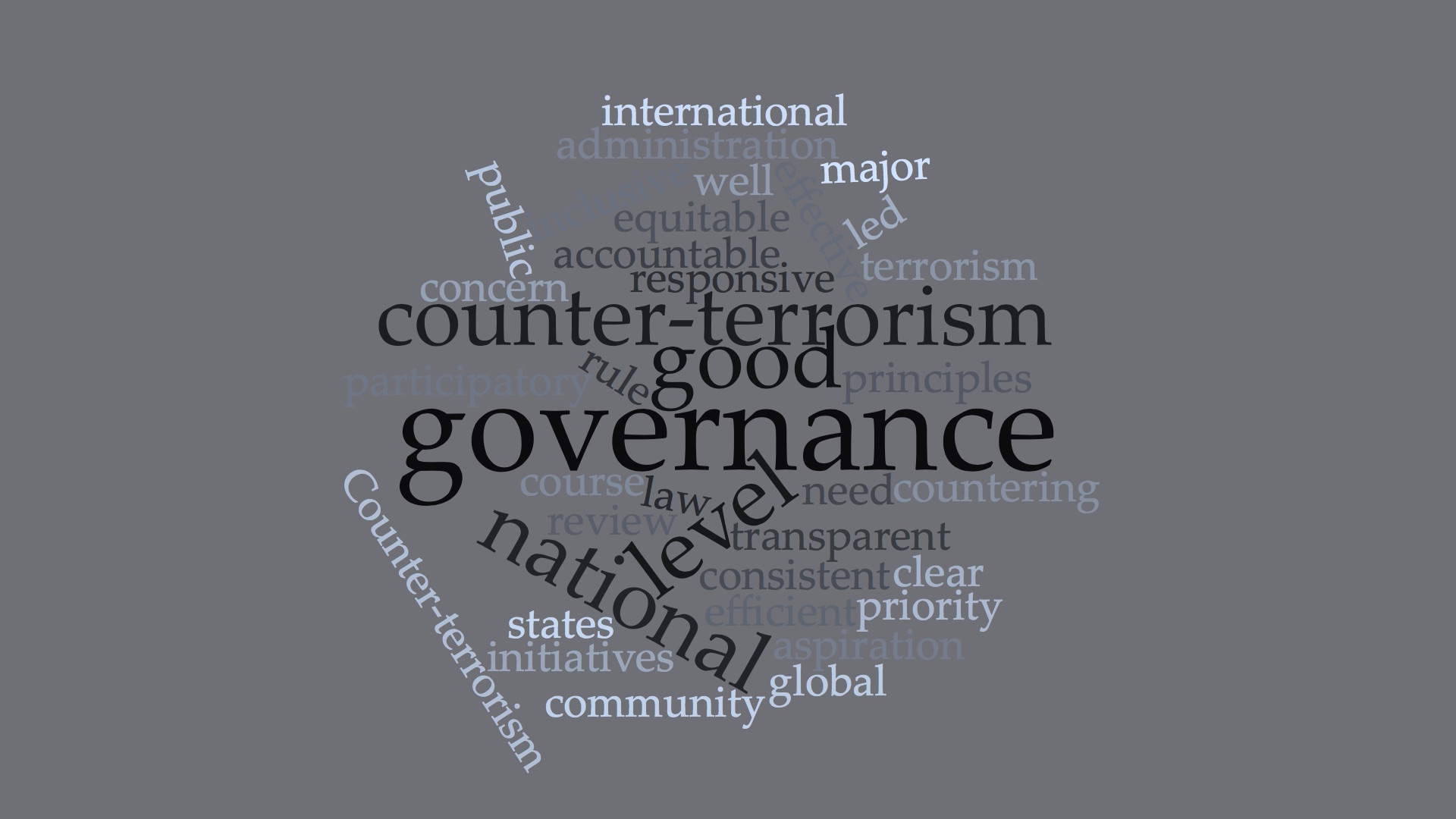 Counter-terrorism is not only a national, but a global concern, with major initiatives being led at UN and EU level, as well of course as at national level. However, even though countering terrorism is a clear priority for states and the international community, and one on which significant amounts of money are spent on an annual basis, important questions about the governance of counter-terrorism persist.
Counter-terrorism is not only a national, but a global concern, with major initiatives being led at UN and EU level, as well of course as at national level. However, even though countering terrorism is a clear priority for states and the international community, and one on which significant amounts of money are spent on an annual basis, important questions about the governance of counter-terrorism persist.
In all parts of public administration there is an aspiration to good governance, i.e. to ensuring that decisions about public expenditure and the organisation of the state are accountable, are transparent, are consistent with the rule of law, are responsive to need, are equitable and inclusive, are participatory, and are effective (i.e. ‘work’ to achieve their stated outcomes) and efficient (i.e. make the best possible use of available resources). Although we are now accustomed to both national and international organisations committing to good governance in a general sense, it is not entirely clear that an equivalent commitment exists—or at least, is given effect to—in the context of counter-terrorism. In essence, that is what this project is about: it is about assessing the extent to which counter-terrorism in the United Kingdom complies with principles of good governance.
Our particular focus here is on counter-terrorism review, and especially on whether the mechanisms of reviewing counter-terrorism that operate in the UK are (a) designed in a way that enables, and (b) actually succeed in achieving good governance in counter-terrorism. To do this we must firstly try to understand the nature and scale of counter-terrorism review in the UK, which is a task that occupied much of the first three months of our project. Then, we need to explore how those review mechanisms actually work: what kinds of things can they review, and what is beyond their purview? What happens to the results of their reviews: are they presented to Parliament, or to Government, or both? Do they lead to changes in how counter-terrorism policy and law is designed and implemented? Do reviewers have access to the kinds of information they need to undertake their reviews comprehensively and effectively? Can people and organisations that have concerns about how counter-terrorism powers are being applied participate in these reviews, or maybe even initiate them? And so on.
These questions matter—and this research matters—because unless we can be satisfied that counter-terrorism is being pursued with a commitment to good governance, questions of both effectiveness and justification arise. If we do not know whether counter-terrorism works then how can we determine whether we think the sacrifices and commitments (of rights, liberties, funding, and so on) that underpin counter-terrorism are justified, and justifiable? And if we do not have processes in place to assess whether counter-terrorism works, can we determine whether some of the laws and policies implemented under this banner might actually be counter-productive or ineffective in the longer term?
In this project, then, we want to develop a better and more comprehensive understanding of what counter-terrorism review is, how it operates in the UK, and whether it succeeds in promoting good governance in this fundamental and sprawling field of government action. Where necessary, we will then able to propose the reform of counter-terrorism review for the purposes of promoting good governance and, as a result, a more effective and legitimate approach to countering terrorism in the United Kingdom.

1 thought on “Counter-Terrorism Review and Good Governance”
Comments are closed.